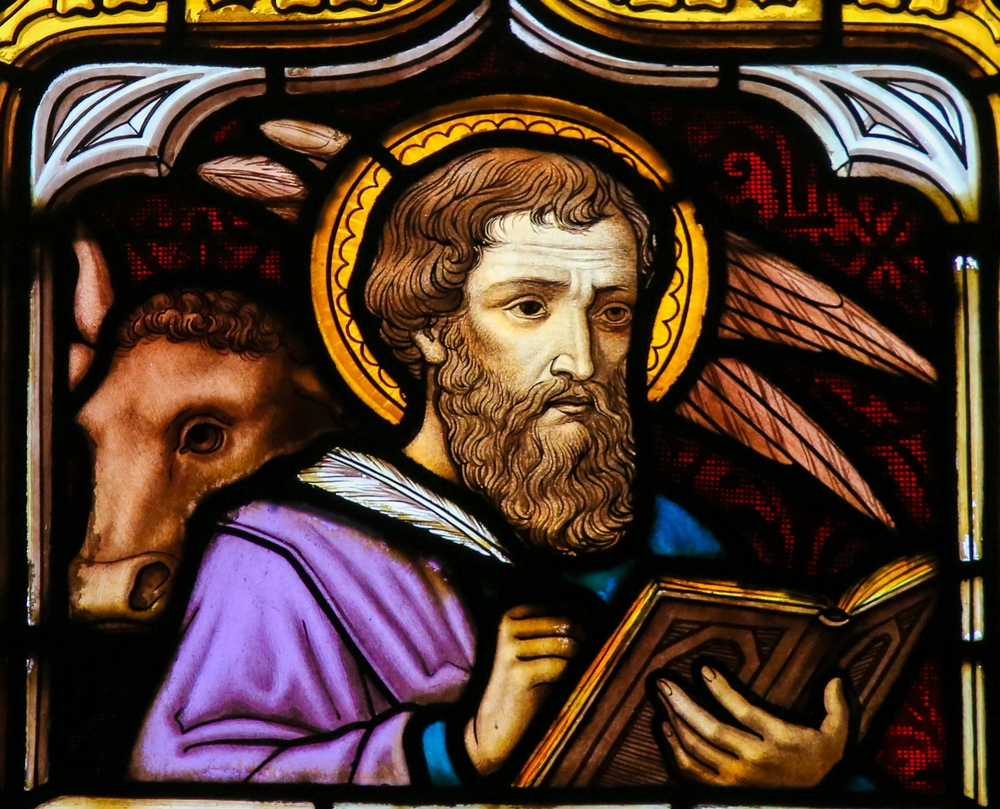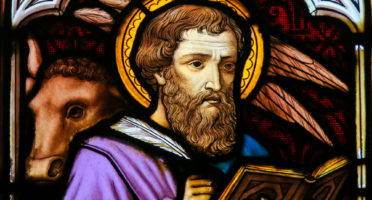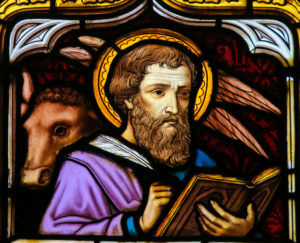Luke/ Lucius: a reconstruction of New Testament evidence and Historical Imagination
Looking for Luke …
The author of Luke’s Gospel and Acts wrote about 28% of the New Testament. That is more than the sum of the Apostle Paul’s thirteen letters and yet, at first glance, we appear to know almost nothing of him. Luke is mentioned by the name ‘Luke’ three times in Paul’s letters:
- Our dear friend Luke, the doctor, and Demas send greetings. Colossians 4:14
- And so do Mark, Aristarchus, Demas and Luke, my fellow workers. Philemon 24
- Only Luke is with me. Get Mark and bring him with you, because he is helpful to me in my ministry. 2 Timothy 4:11
My preferred dating of these letters is Colossians and Philemon (and our Ephesians) were written while Paul was under arrest in Caesarea Maritima around AD 59 AD and 2 Timothy was written around AD 64. Given that timeline, one could be forgiven for thinking that Luke was a ‘latecomer’ to the Pauline circle. By that reading, Luke would have been a member that may have amounted to less than five years in toto. But that would be a misleading reading of the evidence.
When the ‘we’ passages in Acts are read as the author’s (Luke’s) indirect evidence to have been an eyewitness of those particular events, then we can push Luke’s involvement back a further decade to AD 49 when Luke accompanied, Paul, Silas and Timothy to Philippi from Troas Acts 16:10.
There are three sections of Acts where the ‘we’ passages occur:
| Section | Events | Year AD |
| Acts 16:10-17 | Travelling from Troas to Philippi | 49 |
| Acts 20:5-21:18 | Travelling from Philippi to Jerusalem | 57 |
| Acts 27:1-28:16 | Caesarea Maritima to Rome | 59 |
From this evidence, we can further assume that from AD 49-57, Luke made Philippi a base of operations. In a later section, we will give some consideration as to what Luke might have been doing for around nine years in the Roman colony of Philippi.
Is it possible to push Luke’s involvement in the ministry of Paul back even further? How do we explain Luke’s sudden appearance at Troas, his willingness to immediately travel with Paul, Silas, and Timothy to Philippi and then settle in Philippi for nine years? That it was a series of fortunate events stretches credulity, and I believe there is a far simpler explanation at hand, but one that requires the use of our historical imagination.
Lucius to Luke
In AD 47 Barnabas and Saul were set apart in Antioch by the Holy Spirit to embark of what is erroneously referred to as Paul’s First Missionary Journey. They were set apart through the ministry of three other men who were described as prophets and teachers: Simeon called Niger, Lucius of Cyrene, and Manaen (who had been brought up with Herod the tetrarch) Acts 13:1-3
If Lucius of Cyrene was in fact, Luke, the author of Luke’s Gospel and Acts then the appearance of Luke at Troas is by arrangement, and so is his settling down for such a considerable amount of time.
Names that Change
The New Testament contains a significant number of persons whose names change in different contexts.
Saul to Paul is a case in point. In a predominantly Jewish context, the name Saul would have had immediate currency and meaning. However, in a Greek context, it was liable to be a reason for mocking. In the works of Aristophanes, the similar sounding word ‘saulos was an adjective meaning “mincing,” as of a man walking in an exaggeratedly effeminate fashion[1].’
Most name changes were more straightforward; some were nicknames and some were similar in sound.
| Name 1 | Name 2 |
| Cephas (‘rock’ Aramaic) | Peter (‘rock’ Greek) |
| Silas 1 Thess. 1:1 | Silvanus |
| John | Mark |
| Joseph of Cyprus | Barnabas |
| Levi | Matthew |
| Jesus | Justus |
| Joseph | Barsabbas/Justus |
Given these examples, the shift from Lucius to Loukas (Luke) is not a big jump.
If this is the case, it is appropriate to point out that Lucius was probably not only part of the early church in Antioch:
Now those who had been scattered by the persecution that broke out when Stephen was killed travelled as far as Phoenicia, Cyprus, and Antioch, spreading the word only among Jews. Some of them, however, men from Cyprus and Cyrene, went to Antioch and began to speak to Greeks also, telling them the good news about the Lord Jesus. The Lord’s hand was with them, and a great number of people believed and turned to the Lord. Acts 11:19-21
Lucius in Acts 13:1, is described as having come from Cyrene. Cyrene was a Greek city in North Africa, located in what is now modern-day Libya.
Lucius is not the only prominent person to come from Cyrene. In Luke’s Gospel Simon of Cyrene is dragooned by the Roman execution party to carry the cross for an exhausted Jesus (Luke 23:26 c.f. Matt.27:32). In Mark’s Gospel, Simon of Cyrene’s sons, Alexander and Rufus are mentioned, (Mark 15:21).
Furthermore, Jews from Cyrene are present on the Day of Pentecost to hear Peter’s address;
Now there were staying in Jerusalem God-fearing Jews from every nation under heaven. When they heard this sound, a crowd came together in bewilderment, because each one heard their own language being spoken. Utterly amazed, they asked: ‘Aren’t all these who are speaking Galileans? Then how is it that each of us hears them in our native language? Parthians, Medes and Elamites; residents of Mesopotamia, Judea and Cappadocia, Pontus and Asia, Phrygia and Pamphylia, Egypt and the parts of Libya near Cyrene; visitors from Rome (both Jews and converts to Judaism); Cretans and Arabs – we hear them declaring the wonders of God in our own tongues!’ Amazed and perplexed, they asked one another, ‘What does this mean?’ Acts 2:5-12 esp. v10.
Summary
I believe it is appropriate to give serious consideration to the proposal that Lucius, a Christian prophet, and teacher, originally from Cyrene, (Acts 13:1) who became resident in Antioch, shared a passion with Paul to share the Gospel with the Gentiles.
To that end, he was enlisted by Paul to meet him at Troas. This Lucius then accompanied, Paul, Silas, and Timothy to Philippi and stayed there for nine years before accompanying Paul to Jerusalem and then two years later to Rome.
Given that, Lucius’ involvement in the early church may well be pushed back as far as the day of Pentecost in Jerusalem, but there is little firm evidence for a conversion at Pentecost. But what we can say is that somewhere between Pentecost and the establishment of the church at Antioch, Lucius was converted. Lucius, I contend, is our ‘Luke’ of the Pauline letters Colossians, Philemon and 2 Timothy, who accompanies Paul from Troas to Philippi; Philippi to Jerusalem and from Jerusalem to Rome.
In subsequent posts, I want to explore what Luke might have done in Philippi, Jerusalem and Rome and consider how this may throw light on when and how Acts and the Gospel of Luke were written.
[1] N.T. Wright, Paul: A Biography., 2018 p116



